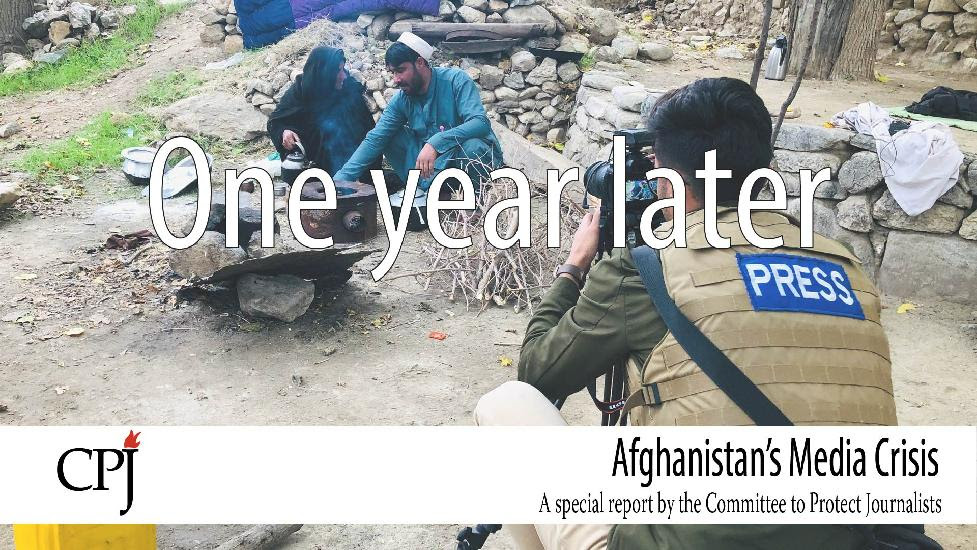One year after the Taliban’s return to power, Afghan news outlets are struggling to survive amid an increasingly restrictive censorship regime targeting independent journalists, the flight of many Afghan media workers, and the country’s declining economy, finds a new special report released Thursday by the Committee to Protect Journalists (CPJ).
The assessment, “Afghanistan’s Media Crisis” finds a deterioration in press freedom over the last year, marked by censorship, arrests, assaults, and restrictions on women journalists. At the same time, the report showcases the tenacity and vital reporting by those journalists who remain and the valuable work of Afghan journalists working in exile.
“The Taliban’s moves to repress the media are having a devastating impact. The particularly restrictive measures targeting female journalists amount to an attempt to erase women from public life,” said CPJ President Jodie Ginsberg.
“Afghanistan’s remaining journalists are determined to continue reporting but they, and the vast community of media workers now in exile, cannot be left to surmount the obstacles on their own. The Taliban must face significant international pressure to reverse course and cease their assault on a free press.”
CPJ’s report, based on interviews with a wide range of Afghan reporters and media executives, documents the Taliban’s arbitrary arrests, assaults, and threats against journalists–and the fear and self-censorship fostered by these new measures.
The last year has seen a steep drop in the number of Afghan newspapers, radio stations and other news sources, as well as a collapse in the number of women journalists. The Taliban’s push to remove women from public life has meant that the daily realities of Afghan women often go undocumented and unheard.
“Afghan journalists are navigating a perilous environment as fear of the Taliban amidst the country’s sharply declining economy deal a double blow to the media,” said Steven Butler, a senior CPJ program consultant and one of the report’s authors.
“The resilience of Afghan journalists who remain in the country, combined with those who report from exile, offer a glimmer of hope. But more is needed. The Taliban must abide by their initial promises to allow independent journalist to report freely and safely.”
The report offers a comprehensive set of policy recommendations to the Taliban, foreign governments, and international organizations. Among these, CPJ recommends that foreign governments provide resettlement support to at-risk journalists, as well as humanitarian and technical assistance to those remaining in Afghanistan.
Critically, CPJ recommends that the Taliban end the involvement of the General Directorate of Intelligence in media oversight and allow civil institutions to exercise their authority over the sector. Pressure must also be brought to bear on the Taliban to live up to their pledges and guarantee the ability of all journalists and media workers to report and produce news freely and independently, without fear of reprisal.



